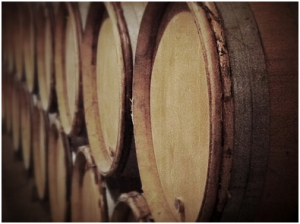Investing in wine is a good choice however it’s made by people who know that fine wine can provide not only pleasure, but also profit. The difference between fine wine and similar luxurious items such as Aston Martin cars or Rolex Watches is that the number of fine wines is limited regardless of people’s demand. Once you pick the grapes, you have no chances of planting more, since all geographical areas are supervised.
Is Fine Wine Really a Secure Investment?
When you make an investment, you automatically take some chances, as prices can go either down or up when you least expect. Taking into account that fine wine prices are settled according to the increasing rarity of the wines, considering your wine portfolio as a medium term investment is essential. Most people are attracted to fine wine investments because they don’t imply any taxes on profits. Since fine wine is considered to be a wasting asset, you don’t have to worry about attracting any taxes on gains.
Wine- An Asset That Implies No Taxes
Savvy investors who want to get initiated in luxury wines usually wonder whether fine wines really are tax free. As mentioned above, wines’ life expectancy is only 50 years, meaning that they’re seen as wasting assets, which are by definition entities whose lifespan are limited and whose values decline over time. This category of assets also includes machinery and vehicles.
Because they are considered to be wasting assets, fine wines do not attract capital gains taxes. Besides, wine is also unaffected by income taxes because it’s not seen as an investment that bears income. Therefore, investors who turn their attention to fine wines will definitely not hold the fine wines included in their portfolios for longer than 50 years.
However, investors should keep in mind that the taxation of fine wines depends on the storage term. For example, if you store your wines for 12 months before selling them, you will not be required to pay any taxes. In case you sell them within the first 12 months of storage, you will have to pay an income tax for all the profits that you gain. However, since fine wine investments are at least medium term ones, all your wines will be probably stored for more than 12 months before the selling.
Once you decide to invest in fine wines, you will have to make sure that all the stocks you have purchased are insured and stored only in bonded warehouses. As a result, once you make sure that your stock is preserved in a bonded warehouse you will no longer have to worry about paying additional charges.
Investors are fascinated by fine wine because it’s tax-free
It’s no longer a mystery why most investors turn their attention to fine wines. In this insecure fiscal environment, savvy investors have found the perfect way to invest their money into something that doesn’t imply any taxes. Fine wines have become so popular that the number of fine wine investors has increased remarkably all over the world.
However, bear in mind that not all the countries have identical tax laws. As a result, this article shouldn’t be taken for granted by everybody, as it describes a reality that applies only to countries such as Germany, Austria, UK, France, Hong Kong, etc. Before making an investment in fine wines, you should make sure that you are familiar with the laws that apply in your country.
People who invest in wines usually do it either because they want to purchase young wines whose quality will improve in time or because they want to resell them to gain profit. If you are planning to invest in wines, you will be pleased to find out that their demand has increased remarkably in the last period. However, you should know that the myth according to which wine increases in value as time goes by is not completely true, as it can be applied only to one tiny proportion of the wine found on the market.
All in all, wine investments turn out to be a good choice for investors who are fond of luxury assets or who simply love wine. If you are patient and realistic, chances are your investment will be successful, especially because it is a tax-free investment.
Tags: alternative investments, fine wine do not attract capital gains taxes, fine wine investments, fine wine investments are tax-free investments, fine wine is considered a wasting asset, fine wine is tax-free investing, fine wine prices are based on rarity factor, investing for profit and pleasure with wine, investing in wine, investment, limited supply of luxury items, luxury assets, luxury investments, taxation of fine wines depends on storage terms, wasting assets have limited life expectancy, wine investing, wine investment, wine portfolio, wines life expectancy is 50 years
 Oxstones Investment Club™
Oxstones Investment Club™

